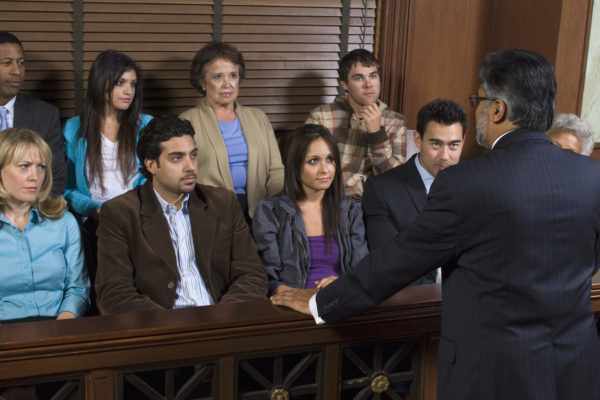Texas saw a remarkable verdict in the Dallas trial of Amber Guyger, a former police officer who shot and killed Botham Jean, a man she tragically and mistakenly thought was in her apartment.
Surprising some, the jury found Guyger guilty of murder rather than a lesser crime of manslaughter or, as the defense hoped, acquitting her under a principle of self-defense.
Next, the jury surprised and angered still others by returning with a sentence of 10 years in prison, far shorter than the prosecution sought.
Some may see these decisions as examples of a stereotypically erratic jury: coming down hard on a police officer who, the defense argued, simply made a horrible mistake, then going soft by failing to hold her accountable for the very actions they deemed murderous. As a scholar of the U.S. jury system, I see this case differently.
This verdict is a near-perfect example of why the founders of the United States put enormous trust in the jury as a decision maker in criminal cases – a trust we have eroded. Although the Guyger verdicts may disappoint some, they show why we need to turn to juries more often.
The case was bound to stir controversy. It involved neither a “whodunit” nor a simple question of whom to believe. The jury could have found the defendant’s account of her actions entirely credible: parking on the wrong floor at the end of a long day, failing to notice signals that she was on the wrong floor, and, by terrible luck, finding Jean’s door unlocked, which permitted her entry.
The jury may have accepted that she felt afraid upon seeing a stranger in “her” apartment. But the jury had to determine norms as well as facts. Was it reasonable to have made such glaring mistakes – to have missed so many signs that one was in the wrong place? Upon hearing that someone was in “her” apartment, was it reasonable to enter, to stand and fight her “intruder,” or should she have done something else, such as retreat and call for backup?
Jurors had to represent the community’s understanding of reasonableness, including judgments of the actions of police officers who daily encounter people they may regard as a threat. By their verdict, the jury rejected the idea that Guyger’s actions were reasonable, which could have led to a manslaughter verdict, and/or justifiable if they deemed it self-defense.
This is exactly how our justice system should work.
Such decisions properly reside with the jury, particularly a diverse body of people as was true in this case. More than a single judge, or an unelected police investigator – a Texas Ranger who investigated the event was prepared to testify that he saw no crime – assessments of what is reasonable belong to an independent body that reflects a broad swath of understanding of community norms.
This is true for the jury’s sentence. Even if murderous, Guyger’s actions were far from a cold, calculated act that merits the longest prison term. Whether the jury as a whole understood this tension, or the verdict and sentence reflected compromises across factions, the outcomes show a keen, dual understanding that an event can be both inexcusable and a tragic mistake. Jean’s brother powerfully demonstrated this tension as he both testified to the pain of his loss and asked permission to hug the defendant.
This case might not resemble other well-known instances of a white officer killing an unarmed black man, but these cases and many others should be decided by bodies that we cannot second-guess as overly aligned with the state or out to score political points.
Instead, as statements about what actions are and are not criminal, verdicts should come from a diverse set of residents of the community “wherein the crime shall have been committed” as the Sixth Amendment states.
Nationally, more than 90% of criminal cases are pled out, and therefore the community makes no judgment about the appropriateness of those pleas or their subsequent sentences. The sad case of Amber Guyger shows that we can improve the standing of our criminal justice system by turning more often to jury trials and to the community’s sense of justice.
Mary R. Rose is an associate professor of sociology at The University of Texas at Austin.
A version of this op-ed appeared in USA Today.




